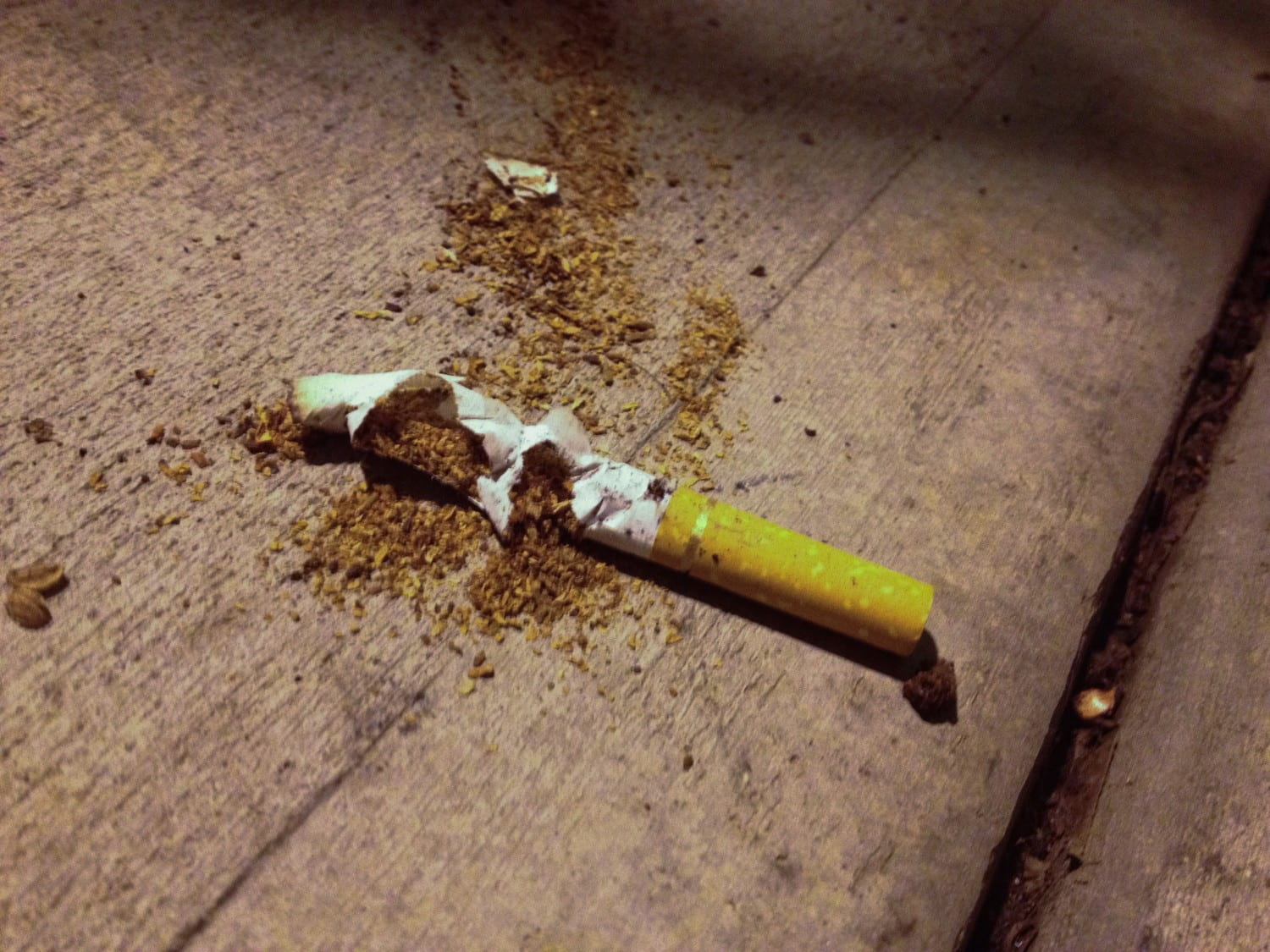By Bryan Wright – Cento Writer
CVS has decided to stop selling tobacco products because doing so conflicts with their purpose of providing a form of healthcare as a pharmacy. This made me think that the intelligent people at Centre College should follow suit by actively remembering the harm that tobacco use can do to our health.
Tobacco use, and cigarette smoking specifically, continues to happen, despite health warnings. This is the case on Centre’s campus, too, but I don’t think it should be. We should strive to reduce smoking on our campus because the decision to smoke is less valid than the decision not to.

CVS Pharmacy recently announced that it will stop selling all tobacco products by Oct. 1. This was a self-proclaimed decision by the company ‘s president that arose from a striking inconsistency: the company as a healthcare venue sold unhealthy products. Unhealthy tobacco products will not be available for purchase – a practice more in line with the company’s purpose.
CVS’s website points to a few facts from the 2014 Surgeon General’s report on the consequences of smoking: 16 million people have at least one smoking-related disease, 480,000 Americans die annually from smoking, and 90% of cases of lung cancer are caused by smoking.
At Centre, while students smoke less than those at other colleges, the practice still occurs. According to a 2012 survey from the National College Health Assessment, the percent of Centre students who smoked once or more in the last 30 days was 11.6%. The national average for college students was 14.3%.
Smoking rates are low, especially on campus. But the health of these 11.6% or so of our students that use these unhealthy tobacco products matters, regardless of the smallness of the percentage.
Smoking is unhealthy. Yet some of our fellow students partake in this unhealthy activity, leaving us with the question: why do some of our peers smoke despite the health risks? Sophomore Robert Widener said that he began smoking in part because his friends at the time smoked.
Peer pressure can lead young people to smoke and can initiate a lifelong habit of a nicotine addiction, and certainly through one’s time in college. There are assuredly many other reasons, but pressure from friends seems to be common for young people. This initiation into a dangerous habit is sometimes and unfortunately not out of reason but out of circumstance.
If the decision to smoke were always a conscious one, I believe nobody would smoke. Who would come to the logical conclusion that they should smoke a cigarette to increase their risk of certain cancers? Nobody. And hopefully no one at Centre would endanger their health. But smoking still happens, so we shouldn’t complacently accept a low but persistent percentage of student smokers.
Stores such as CVS fill shelves with cigarettes and other tobacco products right next to shelves filled with chewing gum and candy. The decision to buy chewing gum doesn’t require much consideration because it doesn’t harm the human body as far as we can tell.
The decision to buy a pack of cigarettes, on the other hand, should require more intention. But it seems that is not always the case. One student told me that if he buys cigarettes at Speedway, the decision is sometimes made the second before stepping up to the checkout counter. Something as unhealthy as a cigarette should be harder to buy than chewing gum. However, assuming you are 18 years or older, they may be purchased with equivalently little effort.
The decision to purchase a cigarette ought to be more intentional because the health risks of smoking are evidenced and severe. We should remind ourselves that the carcinogens contained within cigarettes pose a serious health risk. The decision we make to or not to purchase a pack of cigarettes should be much more logically thought out than it sometimes is.
When students smoke out of habit and not out of a logical decision-making process, the fewer places to purchase them could go a long way in reducing the smoking rate. So I applaud CVS because now there are fewer places where unhealthy products can be bought with such ease. Hopefully more stores take note from CVS because there is not a good reason to inhale dangerous chemicals into your body, at least not intentionally for a recreational purpose. In offering a possible way to reduce student smoking, Lauren Fall, a senior and intern at Parsons Health Clinic, suggested, “The less accessible tobacco products are, the better.” I could not agree more.

